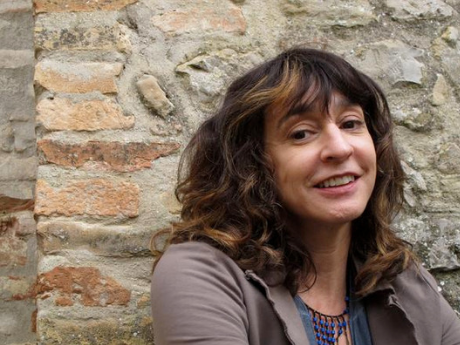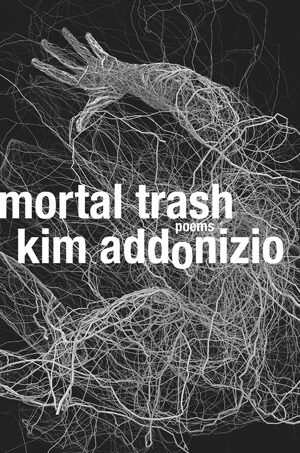In Their Own Words
Kim Addonizio on “The Givens”

The Givens
Someone will bump into you and not apologize, someone will wear
the wrong dress to the party, another lurch drunk into the table
of cheeses and pastries at the memorial service, someone will tell you
she's sorry it's out of her hands as though everything isn't already.
One day the toilet will mysteriously detach its little chain
from its rubber thingie and refuse to flush, in the throes
of whatever existential crisis toilets experience after so much human
waste, so many tampons it wasn't supposed to swallow, so many pills
washed down because someone in a fit of sobriety tossed them in, though later
regretted it but too late, they're gone, someone kneeling to empty
a meal, a bottle of wine, too many mango-cucumber-vodka cocktails made
from a recipe by Martha Stewart. Someone will have seen Martha Stewart
in a restaurant, surrounded by admirers; criminals
will order quail, world leaders will stab their forks into small countries
to hold them still for their serrated knives. Ben Franklin said
nothing is certain in this world but death and taxes but he was wrong
about the taxes but then again, right about the impermanency
of the Constitution. No one will come to your door to give you a stack
of bills imprinted with Ben Franklin's face, but a Jehovah's Witness
will find you one day to tell you there is no Hell and that the souls
of the wicked will be annihilated. Someone will love you but not enough,
someone else send gift-wrapped pheromones to your vomeronasal organ,
which will promptly destroy them like bugs in a zapper. These are but a few
of the many givens, and it's tempting to boil them down to just two
like Franklin did but I prefer Duchamp's "Etants Donnes," —1. The Waterfall,
2. The Illuminating Gas, water and light, as it was when God began
to pronounce those words in his marble bathroom but given how it's all
gone since then he probably should have skipped the part where clay
sits up and rubs its eyes, looking for something to fuck or kill.
The rain, the lightning. The river town, the fireworks off the dock.
Someone will run through a lawn sprinkler, someone else open a hydrant.
Someone will pull you from the fire, someone else wrap you in flames.
From Mortal Trash (W. W. Norton, 2016). All rights reserved. Reprinted with the permission of the author.
On "The Givens"
When I'm not writing poems, as I am not currently, I have no idea how I once managed to create them. Most of the situations described—the wrong dress at the party, the drunk at the memorial service—are invented, though I'm positive they have happened to someone, somewhere, and possibly even to me in some place memory can't access. The toilet's malfunction is true, and I did see Martha Stewart in a restaurant. I was following an idea and roping in whatever occurred to me, along with some serendipitous Google results. What I like most when working on a poem is letting association rather than narrative take over, and losing myself in the process.
The seed of this poem was this:
These are the givens:
What enters us will change us.
What we love will be taken.
After that, I played around with language talking about what's given and what's taken back. "I need an image" was the next thing I wrote, which led to lines about redwoods, my cat, a gold squirrel, drinking—I guess I must have poured myself a glass of wine—and an attempt to write a poem about rain. That was the end of that day's writing. Things went on underground after that, and a week or so later I started again. I went through a lot of different possible "givens," and also, according to my saved draft, started trying to write about the anatomical Venuses, the eighteenth-century wax female forms used for medical education that were also a sensation for curious crowds, their internal organs exposed. My favorite was the one of a pregnant woman, the circulation of her blood simulated by claret passed through glass tubes.
"The Givens" turned out to be a viable fetus and made it into the world. Maybe one about an anatomical Venus is going to show up one day, but maybe not. I don't know why one poem gets realized and another is stillborn. I guess that's one of the givens, too: a lot of possibilities vanish, a few become our poems and our lives.



